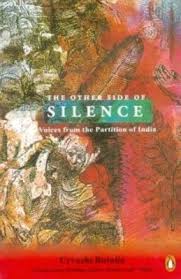Vivek Tejuja’s recommendations, 25 Books by Indian authors ( Nov 2014)
 ( Vivek Tejuja posted this list on his Facebook page on 26 Nov 2014. I am reposting it on my blog with his permission.)
( Vivek Tejuja posted this list on his Facebook page on 26 Nov 2014. I am reposting it on my blog with his permission.)
In his post, Vivek Tejuja writes “25 Books by Indian authors that Everyone should read , according to me. This is just my opinion of these books which I have loved and enjoyed over the years. I know there are way too many more which can be added here.”
1. All About H. Hatterr by G.V. Desani
2. Mother of 1084 by Mahasweta Devi
3. In Custody by Anita Desai
4. Collected Poems by Eunice de Souza
5. In A Forest, A Deer by Ambai
6. The Book of Destruction by Anand
7. Hangwoman by K. Meera
8. All for Love by Ved Mehta
9. A Life in Words by Ismat Chughtai
10. The Music of Solitude by Krishna Sobti
11. The Other Side of Silence by Urvashi Butalia
12. Dozakhnama by Rabisankar Bal
13. Mumbai Fables by Gyan Prakash
14. Seven Sixes are Forty Three by Kiran Nagarkar
15. The Mirror of Beauty by Shamsur Rahman Faruqi
16. Em and the Big Hoom by Jerry Pinto
17. The Guide by R.K. Narayan
18. Rasidi Ticket by Amrita Pritam
19. Selected Short Stories by Kalki
20. Raag Darbari by Shrilal Shukla
21. Randamoozham or Bhima by M.T. Vasudevan Nair
22. Divya by Yashpal
23. Suraj ka Saatwan Ghoda by Dharamveer Bharati
24. Mrityunjaya by Shivaji Sawant
25. Love and Longing in Bombay by Vikram Chandra
27 Nov 2014

